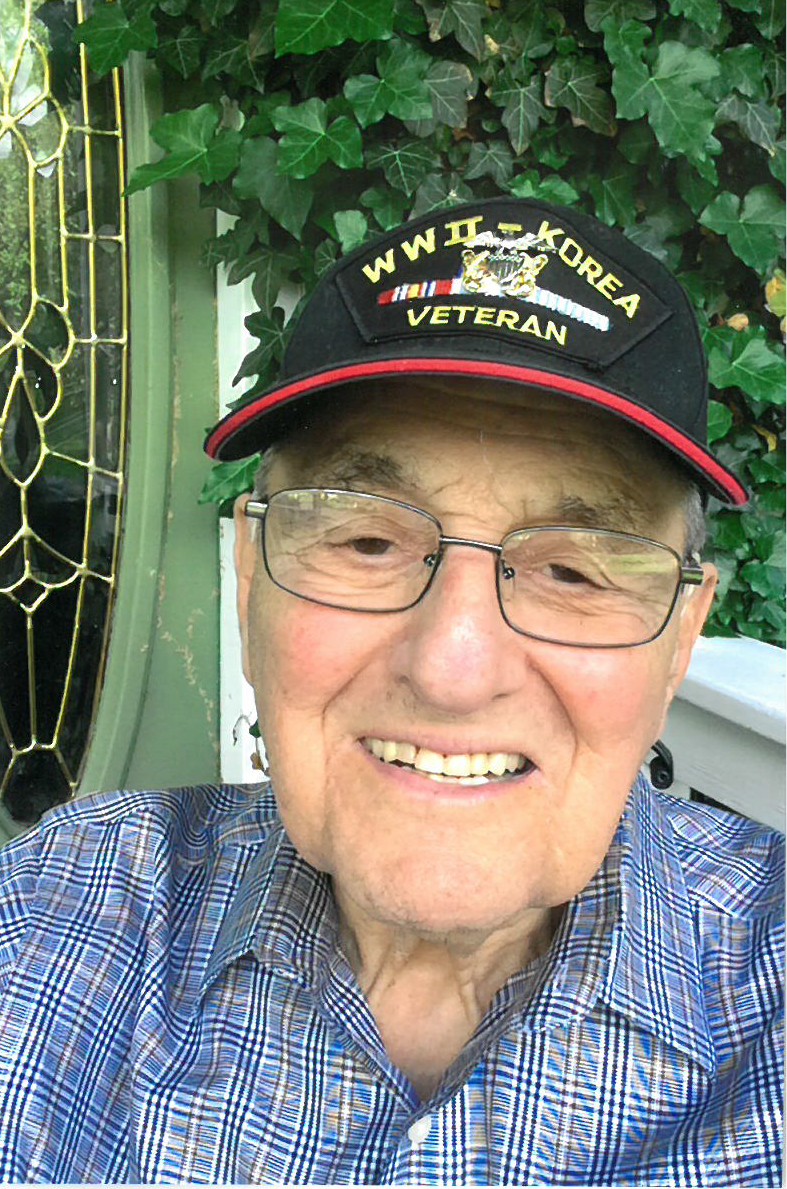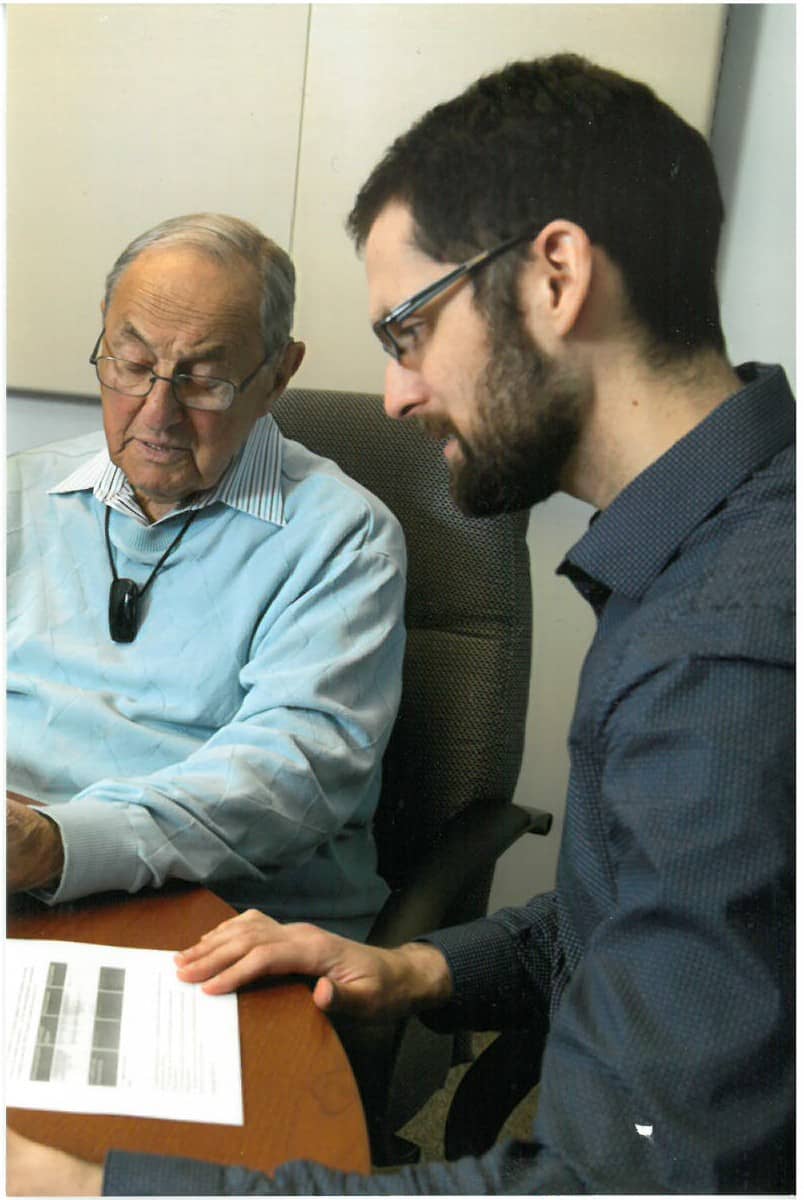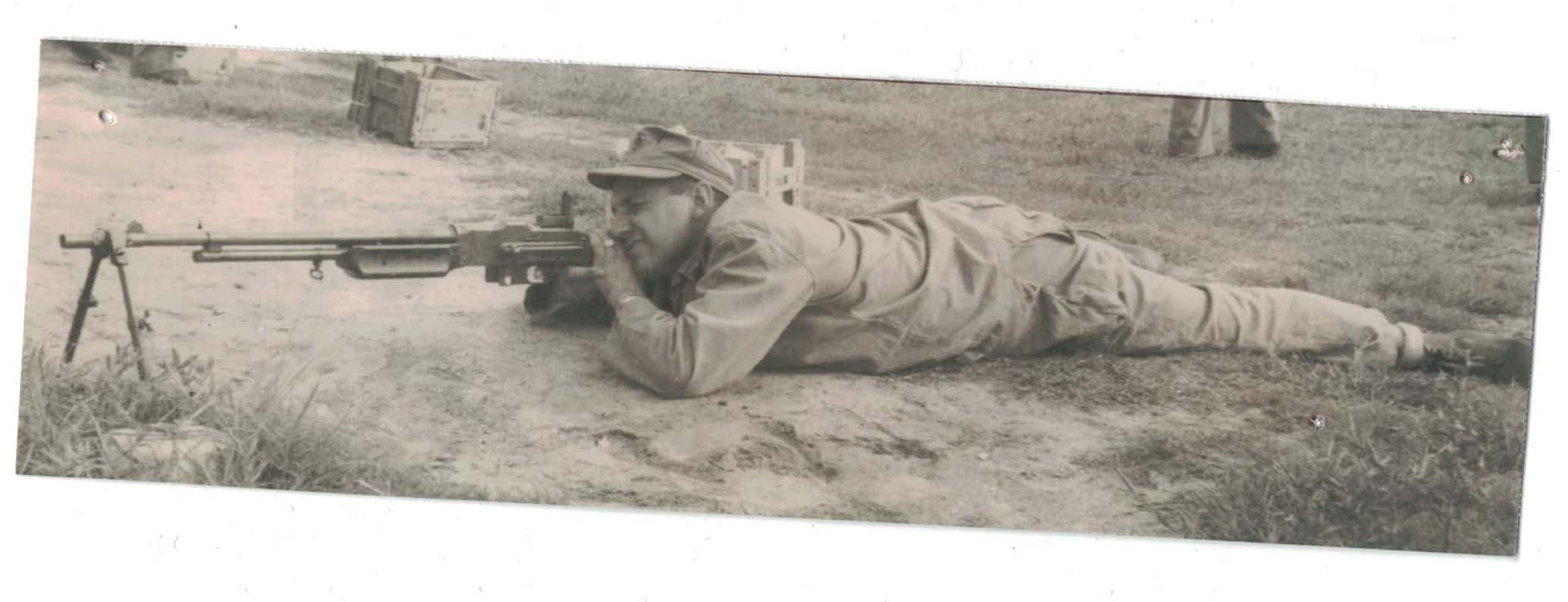Dr. Bruce Douglas (Professor of Health and Aging at the University of Illinois at Chicago School of Public Health), a veteran with hearing loss, struggled with hearing throughout his life, but attributes his true hearing loss to loud gunshot noises from his time serving in the Korean War. After years in hearing aids, he got a Cochlear™ Nucleus® Implant, and he was able to continue working and building relationships. Now, he is looking forward to new experiences and his 100th birthday.
“‘Our’ story is your story as well as mine! There are many personal experiences relating to my hearing loss that I know have also occurred in the lives of others who share the same disability. We have all struggled to remain in, or return to, the hearing world around us.
Potential for new technology
 After many years of justifiable indecision, I had my first hearing aids in 1980. My doctor was very honest with me in saying, ‘all I am doing is placing tiny microphones in your ears that will magnify sounds, but they will not help with comprehension. We are working on that.’ I had no idea that he was determined to do something about it!
After many years of justifiable indecision, I had my first hearing aids in 1980. My doctor was very honest with me in saying, ‘all I am doing is placing tiny microphones in your ears that will magnify sounds, but they will not help with comprehension. We are working on that.’ I had no idea that he was determined to do something about it!
My doctor dealt aggressively with the frustrations that accompanied those early years of progress with audiological science. The last time I saw him, he talked about a new science that was going to revolutionize the practice of audiology, where electrodes were going to be placed inside the cochlea in the inner ear and send sound directly to the auditory nerve as it entered the brain. Little did I know that I would ultimately be a beneficiary of the cochlear implant revolution to which he was referring.
My professional and personal background
I am 93 years old, and I go to work regularly at the University Of Illinois School Of Public Health where I am Professor of Health and Aging. I head a research project on ‘the effect of senescence on the quality of life of older people,’ within which I place a high priority on communication capability, especially hearing loss for older people. That subject is near and dear to my heart.
My paternal grandfather and father were both hard of hearing. When the family chorus started hounding them to ‘go get hearing aids,’ they joined hands and said that they belonged to a family of mumblers. While on the surface, this appeared to be nothing but levity, something very serious was taking place that needed resolution. My father was getting bitter and complained to me, privately, that he sometimes felt isolated; however, he finally acquiesced and went to a nearby hearing aid store for an evaluation. This was the mid-1930s and the result was predictable! From that point on, he and my aging grandfather picked on my mother, telling her that she needed glasses and dentures! Elsewhere, this might sound like a funny family story, but I feel that it commonly takes place in multiple numbers of households.
My own story, to the best of my recollection, really kicked off one day when a teacher told me not to clip my nails during his lecture. I had no way of knowing that nail clippers made such a loud noise! I could not hear it! It was not that I did not acknowledge that my hearing was poor; I just felt hearing loss was a part of getting older. I also insisted on sitting in the front row in my classrooms.
As a teenager, I became sensitive to my hearing limitations, but I did not really have anyone with whom I could discuss my problem. When I went to my family doctor for a routine medical check-up, and casually asked about hearing aids, he was honest when he told me to ‘live with it’ and maybe to get hearing aids when I was older.
Adjusting life to my hearing
Because of my hearing situation, there were some aspects of life that I had to adjust. I started to stare at people when they talked to me, as I was subconsciously learning to read lips. I would always try to get a seat in the front of the room in school and in larger assemblies for the same reason. I even, when possible, went to some assembly halls in advance and placed a note on a seat in the first row saying ‘RESERVED.’ If queried by anyone, I would truthfully admit that I had a hearing problem and the matter would rest. Lord knows how many times in my life that my hearing impairment affected my relationships with the outside world!
Those kinds of recollections and reflections have influenced me to become a hearing loss activist. I know now what I did not know then; that hearing loss starts long before most people become conscious of it, or before they are willing to face the fact that they have a problem that should be dealt with as early as possible.
What I have gradually come to understand about the social ramifications of hearing loss is that subtle behavioral and psychological personality traits can evolve in the interpersonal lives of hearing-impaired persons. Rather than living in denial, I feel it is better to recognize hearing loss.
The Day My Life Changed Forever
On December 7, 1941, just as I was starting college, I knew that military service was inevitable. The Armed Forces knew that they were going to need multiple numbers of doctors, so the Navy began a program to train physicians and dentists. I passed an examination, which allowed me to continue my undergraduate pre-dental program at Princeton. Eventually, after finishing dental school and postgraduate training in oral and maxillofacial surgery, I was obligated, as a member of the Naval Reserve, to return to service as the Korean War entered its crucial stages.
I was assigned as a Navy oral surgeon to the Marine Base at Parris Island, S.C., during the first week of which our detachment of 75 dentists had to partake in an abbreviated basic training program, similar to the one each Marine recruit also took, only theirs was nine weeks long!
My left knee developed a tendonitis that has never gone away, and both of my ears succumbed to tinnitus that has also never gone away… Unfortunately, my experiences in the Navy caused an acoustic traumatic event that eventually led to my hearing disability.
I was a city boy whose only experience with guns and rifles was in a shooting gallery in Coney Island. How was I supposed to know that you never pull the trigger on an M1 rifle without hearing protective devices over both ears! The picture above was taken the moment my life changed forever. I learned that day what tinnitus was first hand, and I learned from my doctor that I was probably going to have to live with it for the rest of my life. Guess what? He was right! My doctor informed me a year or two later that he finally got the Navy to issue regulations requiring hearing protection on its firing ranges.
The beginning of a world of sound
 I did not acquire my first hearing aids for 28 years after needing them. Thirty years later, I found my way to a Veteran (VA) Hospital’s audiology department where I started to get appropriate care! With the help of my VA audiologists and a VA psychologist, I was blessed with a wonderful support system and the kindest present ever presented to me…
I did not acquire my first hearing aids for 28 years after needing them. Thirty years later, I found my way to a Veteran (VA) Hospital’s audiology department where I started to get appropriate care! With the help of my VA audiologists and a VA psychologist, I was blessed with a wonderful support system and the kindest present ever presented to me…
The Cochlear Nucleus Implant has introduced me to a world of sound that I could not know existed if I had not had the Cochlear Nucleus Implant surgery done.
At the time, I thought my hearing aids were working relatively well. I knew about cochlear implants, but was convinced that at age 90, it was too late for me to get a cochlear implant. I cannot even begin to express my appreciation to the two audiologists at the VA Hospital and my primary audiologist for their support in encouraging me to have cochlear implant surgery on my almost deaf right ear. They stuck with me through the period of adjustment, while my brain worked overtime to teach my right and left ears to talk to each other. This enabled me to remain active in my academic and professional lives and to return to the real world of hearing.
My hearing aid and Cochlear Nucleus Implant are working amazingly well together, but the Cochlear Nucleus Implant has introduced me to a world of sound that I could not know existed if I had not had the Cochlear Nucleus Implant surgery done. Assuming that the future will bring more miracles, I am hoping that most of them happen before the year 2025, when I reach my 100th birthday.”
